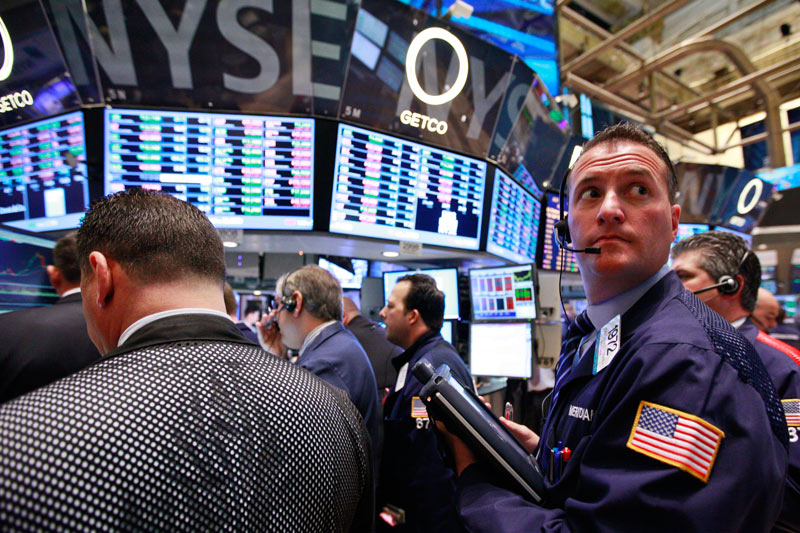By Geoffrey Smith
Investing.com -- U.S. stock markets clawed back early losses on Friday , but still drifted lower amid growing concerns that the pandemic and its political fallout will breathe new life into an economically damaging trade war that had been in suspended animation since January.
Wall Street rebounded after an initial blow from figures showing the biggest ever monthly drop in retail sales in April, the first full month of lockdowns dictated by public health concerns. April's data for industrial production and manufacturing output were, however, marginally better than expected.
By 10:20 AM ET (1420 GMT), the Dow Jones Industrial Average was down only 4 points, effectively unchanged on the day, while the S&P 500 was down 0.3%. In a conspicuous contrast to recent trading patterns, the Nasdaq Composite was underperforming, losing 0.4% as semiconductor stocks - typically sensitive to the trade issue - fell more sharply than most. That followed a new executive order tightening the current restrictions on sales of high-performance chips by U.S. companies to Chinese telecoms giant Huawei, which the administration has repeatedly accused of aiding Chinese spying.
Qualcomm (NASDAQ:QCOM) stock fell 4.2% in early trading, while Micron Technology (NASDAQ:MU) stock fell 3.6% and Intel (NASDAQ:INTC) stock fell 2.4%, after Hu Xijin, editor of the Chinese English-language publication The Global Times, warned of possible retaliation. He also singled out Cisco Systems (NASDAQ:CSCO), Apple and Boeing (NYSE:BA) as possible targets. Apple (NASDAQ:AAPL) stock fell 2.0% but the other companies' moves were unremarkable.
Earlier, the Census Bureau reported that retail sales fell 16.4% in April as the country's malls and stores were shut down by government order to stop the spread of the Covid-19 virus. Core retail sales fell an even sharper 17.2%. Industrial production, meanwhile, fell 11.2% and manufacturing output by 13.7%, as the nation's factories ground to a near-halt.
"As with the retail sales numbers, these data likely mark the floor for industrial output, but the rebound will be much less steep than the collapse, so a huge Q2 drop is a certainty," said Pantheon Macroeconomics chief economist Ian Shepherdson. "The lost ground will not be quickly recovered."
The retail sales numbers underlined how much online retailers had gained at the expense of traditional ones, with non-store retail actually rising 8.4% on the month. However, the news failed to move Amazon.com Inc (NASDAQ:AMZN) stock, which fell 0.6%, while Walmart (NYSE:WMT) stock rose 1.0%. The phenomenon wasn't limited to the U.S., with ADRs in Chinese retailer JD.com (NASDAQ:JD) rising sharply after it posted better-than-expected quarterly numbers, also lifting the ADRs of rival Pinduoduo (NASDAQ:PDD).
Elsewhere, crude oil prices extended their recent gains as more investors bought into the narrative of global market rebalancing. U.S. Crude futures were up 5.1% at $28.96 a barrel, their highest since early April.
